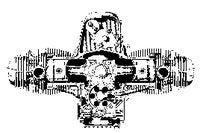boxter engine
8 Answers
they're very well balanced and make great power... they're also great for turbos with top mount intercoolers.
Just to be clear, you're referring to horizontally opposed "boxer" engines, not the engine from the Porsche "Boxter" correct? Boxer engines are mostly used to save vertical space (lower center of gravity) and provide a smoother ride (less engine shudder). I'm never owned a car with a boxer engine, but due to design, I suspect the downside is that they're hard to work on and I would question the reliability versus a "V" design (since more of the shock from combustion is absorbed by the block and not the mounts... and none of the most reliable cars in the world use boxer engines).
They are actually easier to work on in my opinion... As long as you're comfortable on your back... Lay down versus hunch over... about the only difference... They are actually fairly well known for reliability... Subaru... Air cooled VW and Porsches...Ferrari All were legendary for reliability at some point... Unlike a standard engine there is almost no way to truly kill many boxers... Cylinders are often time replaceable which makes fear of a thrown rod less prevalent... What kills most is lack of interest in fixing and/or lack of maintenance.
Adam's got it right. one of my friends has an impreza loves the car and motor... and if boxer engines were such an issue then why would the subaru rally team use the impreza with it's 2.0L boxer motor? and they boost the hell out of that little motor... boxers are great, and you want combustion shock on the block... altho in all reality they're just pushing the crank around from either side so the forces are pretty damn balanced...... the only motor that can compete with a boxer for reliability and being balanced is a good straight 6
BMW x Straight 6 = Ultimate reliability. Boxer's are sweet, too. They're one of the reasons I'm thinking of getting an STi in the future.
Let me just say, I was basing my assumption of the boxer being more problematic based on the physical design of the engine and the fact that it's a rare engine setup (just because Impreza's and the occasional sports car use them doesn't make them a common engine, nor does it give evidence to their superiority over the "V" or inline setup). The design clearly is not popular, and there's got to be a reason for that, whether it's hard to engineer or if there are inherent flaws in the configuration. I'm not saying the boxer is inferior, I'm just curious. It's like the whole "Mazda/Rotary" business - sure, the RX-7 FD was a great car, but if the rotary was so great, wouldn't they put it in all of their cars? I will also add that I see a lot more high-horsepower Evo's than STi's out there, but whether or not that has much to do with engine design I don't know.
I think we're all baseing it on assumptions... Likely we're all wrong but until Honda, Toyota, Ford, and GM say why they don't like H banks we'll never know. I can think of two major reasons why I think they aren't more common. The reason that most cars can't use them is they are relatively wide designs. They rarely can be placed directly between suspension consoles, and making them fit in such a way require compact head design and/or small displacement. So their is a sacrifice to reliability/power/cost in that case... Porsche is making their newer engines fit by making them wider cars. Have you ever noticed how wide a Boxster back side is? I'd assume it's cheaper to manufacture a I4 than an H4 in general since an I4 generally has fewer 'precision' (using the word loosely) cast parts. You can get away with a cast head and block on an I4... While with a H4 in many cases you have two block pieces two cylinder banks two heads... That requires a lot more tooling on the manufacturer's end, and require more quality control. So a quick comparison... H banks are.. - More expensive to make - A PITA to fit in a car + Lower Center of Mass (handling improvement) + Almost no vertical engine shudder compared to a V or I bank... + Direct reinforcement of compression stroke by the power stroke reduces stress and strain on the block. +Can have more repair options... I love being able to replace cylinders instead of engines... +/- Can be easier or harder to work on depending on design. (Why did Subaru wrap a hot exhaust around the oil filter?) At least that's how I see it... am I missing anything
Thank you very much.Although personally I'm a fan of the wankel rotary,really enlightened by your responses. Thanks again.

